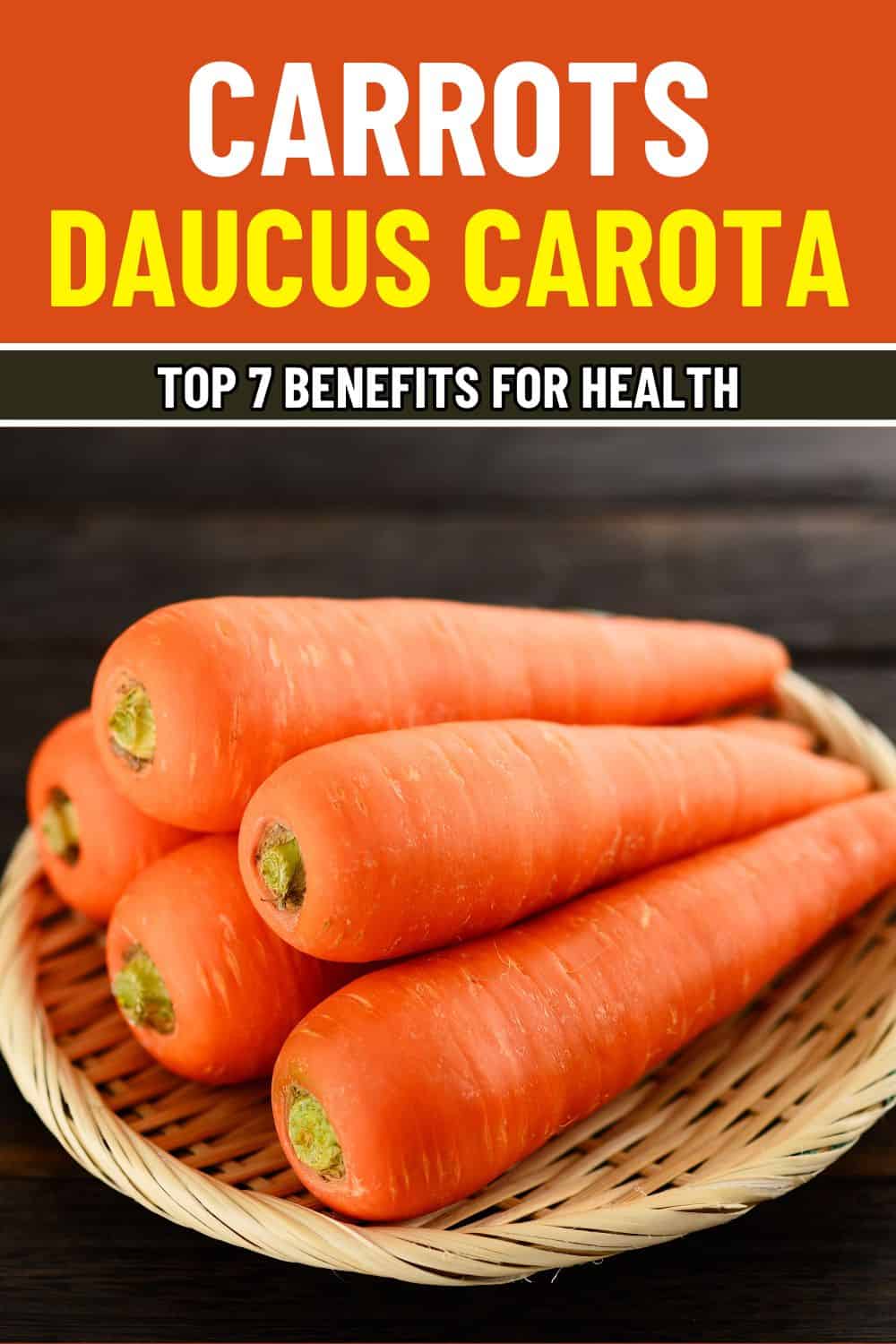Carrots (Daucus carota) are much more than just a crunchy snack or a colorful addition to your salad.
This humble vegetable, often associated with improving eyesight, packs a punch when it comes to overall health.
Best of all, they’re incredibly versatile, making it easy to incorporate them into your daily routine.
#1. Supports Eye Health
When you think of carrots, you likely think of better vision, and for good reason.
Carrots are packed with beta-carotene, which your body converts into vitamin A. Vitamin A plays a critical role in maintaining healthy vision, particularly in low-light conditions.
A deficiency in vitamin A can lead to night blindness, and adequate intake of beta-carotene-rich foods like carrots can reduce this risk.
Just 100 grams of carrots provide around 334% of your daily recommended intake of vitamin A, making it an easy and delicious way to keep your eyesight sharp.

#2. Promotes Healthy Skin
Beta-carotene and vitamin C in carrots work together to protect your skin from the inside out.
Beta-carotene acts as an antioxidant, helping to prevent UV-induced skin damage, while vitamin C supports collagen production, which keeps your skin elastic and youthful.
Additionally, a diet rich in vitamin A can help protect your skin from premature aging and sun damage, and consuming more vitamin C can improve skin texture and appearance.
A 100-gram serving of carrots provides about 7.6 mg of vitamin C, contributing to your skin’s health and radiance.

#3. Aids Digestion
Carrots are also a great source of fiber, which is essential for maintaining healthy digestion.
The fiber in carrots helps keep your bowel movements regular and prevents constipation. It also promotes the growth of healthy gut bacteria, improving overall gut health.
A high-fiber diet is crucial for preventing digestive issues like constipation and can even reduce the risk of colon cancer.
With around 2.8 grams of fiber per 100 grams, carrots are an easy and delicious way to meet your daily fiber needs and support a healthy digestive system.

#4. Boosts Heart Health
Carrots are beneficial for your heart thanks to their fiber, antioxidants, and potassium. The fiber in carrots helps lower cholesterol levels, while potassium supports healthy blood pressure.
Moreover, Beta-carotene, along with other antioxidants, helps reduce inflammation, a major risk factor for heart disease.
Research published in The Journal of Nutrition suggests that higher intakes of fiber and antioxidants from fruits and vegetables like carrots are linked to a reduced risk of cardiovascular disease.
A 100-gram serving of carrots provides 320 mg of potassium, which supports heart health and proper circulation.

#5. Strengthens Your Immune System
Carrots are loaded with both vitamin A and vitamin C, two nutrients that play a vital role in strengthening your immune system.
Vitamin A helps regulate immune function, while vitamin C boosts the production of white blood cells, which are crucial for fighting off infections.
Research has shown that vitamin A deficiency can impair immune function, making you more susceptible to illnesses, so consuming enough carrots can help keep your immune system strong.
For example, a 100-gram serving of carrots offers about 7.6 mg of vitamin C, supporting immune function and protecting you from common illnesses.

#6. Supports Weight Loss
If you’re looking to lose weight or maintain a healthy weight, carrots can be a great ally.
They are low in calories and high in fiber, making them a filling, satisfying snack that can curb your hunger without adding extra calories.
With only 41 calories per 100 grams, carrots are a healthy snack choice that won’t derail your weight loss efforts.
Whether you enjoy them raw or add them to a salad, carrots help you stay full and satisfied without overloading on calories.

#7. Reduces the Risk of Chronic Diseases
Carrots are packed with antioxidants, particularly beta-carotene, which help protect your body against oxidative stress and inflammation.
These are two factors that contribute to the development of chronic diseases like cancer, heart disease, and diabetes.
A 100-gram serving of carrots provides a healthy dose of beta-carotene, a potent antioxidant that helps neutralize harmful free radicals in the body.
By including more carrots in your diet, you are taking proactive steps to reduce your risk of developing chronic diseases.

How to Use Carrots in Your Daily Routine
- Raw snack: Carrots are a perfect on-the-go snack. Just peel, chop, and enjoy!
- In salads: Add shredded carrots to your salads for a fresh, crunchy texture and natural sweetness.
- In smoothies: Blend carrots with fruits like apples or oranges for a nutrient-packed smoothie.
- Carrot soup: For a comforting meal, try making a simple carrot soup with ginger and garlic for an immune-boosting, filling dish.

Cautions and Precautions
Though carrots are generally safe for most people, it’s important to note that some individuals may experience an allergic reaction, particularly if they are allergic to birch pollen.
Additionally, eating excessive amounts of carrots can lead to a harmless condition called carotenemia, where your skin may take on an orange hue.
Disclaimer
This article is for informational purposes only and is not intended to replace professional medical advice.
Always consult with a healthcare provider before making significant dietary changes or addressing any health concerns.







